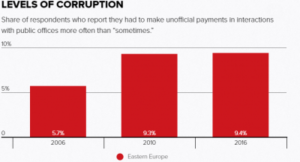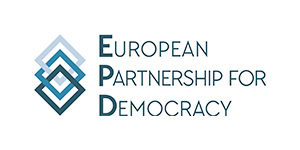
German Economic Institute
For many Slovaks, the texts are a reminder of the sheer depth of corruption in a country still reeling from the shooting of 27-year-old Kuciak and his fiancée in Bratislava in February 2018 (above). They see the texts as proof that Kocner, who was already in custody when he was charged with ordering Kuciak’s murder, thought he was above the law, though he denies any wrongdoing.
“Slovakia has been a mafia state where people like Kocner dictated the most important decisions in the country,” said leaders of For a Decent Slovakia, a protest movement.
As elections loom early next year, For a Decent Slovakia is gearing up for a big anti-corruption protest in September. And independent media in Slovakia, energised in the aftermath of Kuciak’s killing, say they will keep up the pressure for public accountability, Germanova adds.
“I think we’ve never been this close to change,” said Matus Kostolny, editor-in-chief of the Dennik N daily.

Ilya Lozovsky
The International Day of Democracy is a fitting occasion to reflect on accountability – a concept that sits at the heart of democracy, the European Partnership for Democracy adds. When well-functioning accountability mechanisms are in place, governments are incentivised to work in the best interest of citizens and all parties in society, including citizens, political parties, parliaments and other democratic actors are enabled to provide feedback to, reward or sanction public officials.
 The ‘No Democracy Without Accountability’ conference, taking place on 17 September in Brussels, Belgium, is funded by the European Instrument for Democracy and Human Rights (EIDHR).
The ‘No Democracy Without Accountability’ conference, taking place on 17 September in Brussels, Belgium, is funded by the European Instrument for Democracy and Human Rights (EIDHR).
The conference brings together some exceptional individuals from across the world who have been involved in the fight for democratic accountability. These include civil society leaders, elected officials, investigative journalists, academics and EU officials. While these individuals will address the issue of accountability from their particular standpoints, their combined experience makes clear that accountability is a critical development factor within all societies.
 Prominent Kenyan human rights activist Maina Kiai, a former UN Special Rapporteur on the rights to freedom of peaceful assembly and association, will give a much-anticipated keynote speech. Other speakers include Ilya Lozovsky, Managing Editor, Organized Crime and Corruption Reporting Project (OCCRP – a partner of the National Endowment for Democracy) and Vita Dumanska (right), a coordinator of CHESNO movement which is the leading political watchdog in Ukraine founded in 2011. In 2015-2017 Vita led the nationwide campaign “Follow the Money” within CHESNO movement aimed at strengthening transparency and accountability of local authorities.
Prominent Kenyan human rights activist Maina Kiai, a former UN Special Rapporteur on the rights to freedom of peaceful assembly and association, will give a much-anticipated keynote speech. Other speakers include Ilya Lozovsky, Managing Editor, Organized Crime and Corruption Reporting Project (OCCRP – a partner of the National Endowment for Democracy) and Vita Dumanska (right), a coordinator of CHESNO movement which is the leading political watchdog in Ukraine founded in 2011. In 2015-2017 Vita led the nationwide campaign “Follow the Money” within CHESNO movement aimed at strengthening transparency and accountability of local authorities.







